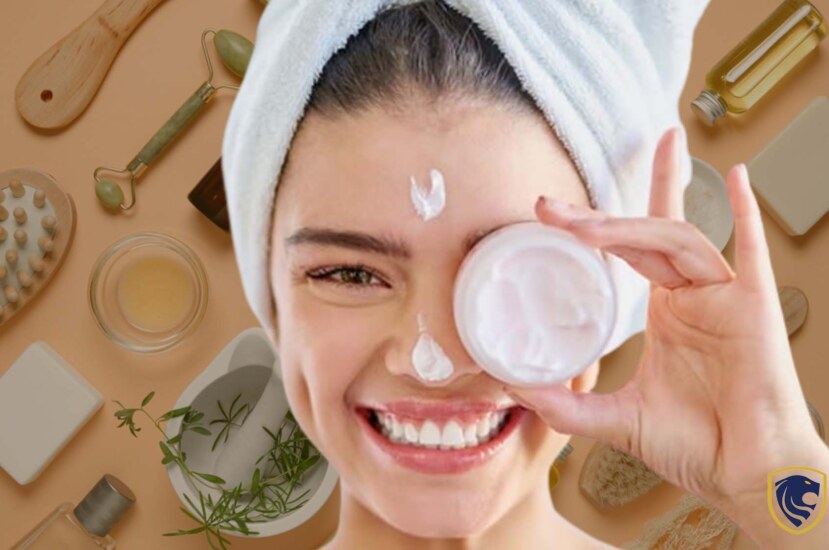Skincare products play an important part in creating healthy, bright skin. The world of skincare is teeming with lotions, serums, and creams, each with its unique combination of chemicals offering a plethora of advantages. These ingredients are the unsung heroes in our search for beautiful skin, from the sought-after hydration power of Hyaluronic Acid to the brightening enchantment of Vitamin C and the exfoliation brilliance of Glycolic Acid. However, it is vital to grasp not just the advantages of these fundamental skincare ingredients. But also their possible negatives. In this post, we’ll dig into the world of skincare ingredients, revealing their advantages as well as potential negatives, allowing you to make educated decisions when creating your skincare regimen.
Understanding the components in your skincare arsenal is the first step towards reaching your skincare objectives, whether you want to battle signs of aging, erase pimples, or just nourish your skin’s health. So, join me on a trip through the beauty aisles and the science of skincare to decipher the mysteries of common substances and discover the route to your finest skin.
Hyaluronic Acid
In skincare, hyaluronic acid (HA) is a standout element. So, what is its major strength? Hydration. HA is a naturally occurring component in our skin that retains water and keeps it plump and moisturized. When utilized in skin care products, HA may be transformative.
Benefits:
1. Intense Hydration: Because HA collects and holds water like a sponge, it is excellent for moisturizing the skin. It keeps your skin soft and smooth by retaining moisture.
2. Wrinkle Reduction: HA helps to plump up the skin, which reduces the appearance of fine lines and wrinkles and gives the skin a younger appearance.
3. Non-Greasy: It is suitable for all skin types because it is lightweight and does not feel sticky or oily on the skin.

Hyaluronic Acid
4. Adaptable: HA may be used with other skincare substances and products to improve their performance.
Disadvantages:
1. Price Variability: High-quality HA products can be expensive, while lower-cost alternatives may be less effective.
2. Sensitivity: Though it’s uncommon, some persons may suffer moderate discomfort or redness while taking HA products for the first time.
3. Transitory Effects: The plumping impact of HA is just transitory, and constant use is required for long-term outcomes.
4. Humidity Dependent: Because HA may take moisture from the skin in dry situations, utilizing it in a humid climate or with a moisturizer is recommended.
Retinol
Retinol, often known as Vitamin A, is a powerful skincare component. Also, its reputation as a skin-revitalizing wonder is well-deserved. So, let us examine the benefits and drawbacks of this wonderful chemical.
Benefits:
1. Anti-Aging Wonder: Retinol is renowned for its ability to diminish the indications of aging, such as wrinkles and fine lines. It increases collagen formation, which firms and soothes the skin.
2. Skin Renewal: It promotes new, fresh skin by accelerating skin cell turnover and removing dead cells.
3. Acne Fighter: By unclogging pores and lowering inflammation, retinol can also help clear acne.
4. Even Skin Tone: In addition, it may reduce hyperpigmentation and dark patches, giving the skin a more even tone.

Retinol
Disadvantages:
1. Irritation: Retinol can produce redness, peeling, and dryness, especially when used for the initial time.
2. Sun Sensitivity: It makes your skin more vulnerable to sunburn, thus sunscreen is essential.
3. Initial Breakouts: Also, some individuals suffer an increase in acne before it improves.
4. Not for All Skin Types: Retinol may not be appropriate for sensitive or excessively dry skin.
Finally, Retinol is a skincare superstar with a proven track record of combating aging and acne. While the advantages are obvious, it is critical to include it gradually in a daily regimen to avoid any irritations. Also, remember to apply sunscreen to your skin to protect it from sunlight.
Vitamin C
Ascorbic acid, another name for vitamin C, is a dietary supplement as well as an effective skincare ingredient. Let’s examine the advantages and disadvantages of this skincare powerhouse.
Benefits:
1. Brightening Wonder: Vitamin C brightens the skin by eradicating dark spots and creating a lovely complexion.
2. Antioxidant Armor- It protects the skin from free radicals, environmental damage, and UV radiation.
3. Collagen Booster: Vitamin C promotes the production of collagen, which helps to keep the skin supple and stave against wrinkles.
4. Erase Uneven Tone: It can help to balance out skin tone and reduce redness and discoloration.

Vitamin C
Disadvantages:
1. Irritation Potential: Vitamin C in high amounts can cause irritation and stinging, especially in those with sensitive skin.
2. Stability Issues: When exposed to light, vitamin C can become unstable and decay. As a result, appropriate storage is essential.
3. Not Suitable for Everyone: Not all skin types can tolerate vitamin C adequately. because some people might get pimples or redness.
4. Time-Consuming: Consistent use over time is required to observe effects.
Finally, Vitamin C provides a dazzling boost to your skin while battling indications of aging and environmental damage. While it’s an important addition to your skincare regimen, it’s critical to pick the proper product and take your skin’s sensitivity into account to maximize the advantages while minimizing any potential negatives.
Salicylic Acid
Salicylic Acid, known as a skin saver, is a go-to ingredient for people looking for clean, blemish-free skin. Let’s look at its benefits and downsides in skincare.
Benefits:
1. Pore Purifier: Salicylic Acid penetrates pores to remove debris, oil, and dead skin cells, making it a great choice for acne-prone skin.
2. Extraordinary Exfoliation: It soothes and brightens the skin’s surface by exfoliating it.
3. Salicylic Acid can aid in lessening the visibility of acne scars and halt the formation of new ones.
4. Oil Control: Because it controls oil production, it is ideal for people with oily skin.

Salicylic Acid
Disadvantages:
1. Drying Potential: Because salicylic acid is drying, especially at higher doses, moisturizing is required.
2. Sensitivity: Some people who have sensitive skin may notice redness or discomfort.
3. Sun Sensitivity: As with many active ingredients, sunscreen is crucial since it may make the skin more sensitive to the sun.
4. Slow Progress: For the greatest results, results may take time, and consistency in use is required.
Finally, Salicylic Acid is an effective treatment for acne and skin congestion, providing exfoliation as well as oil management. However, while appreciating its blemish-busting advantages, it’s critical to control any drying effects and sun sensitivity.
Glycolic Acid
Glycolic Acid is a major element in the realm of skincare. It is a little molecule with enormous potential
Benefits:
1. Exfoliation Expert: Glycolic Acid is an excellent exfoliator that dissolves dead skin cells while revealing a smoother, more youthful complexion.
2. Texture Converter: It also aids in the improvement of skin texture by decreasing roughness and the appearance of fine wrinkles.
3. Pigment Fader: Moreover, glycolic Acid helps reduce the appearance of dark spots and hyperpigmentation, exposing a more even skin tone.
Collagen Catalyst: It increases collagen synthesis, which helps with firmness and elasticity.

Glycolic Acid
Disadvantages:
1. Susceptibility to Sensitivity: Glycolic acid can produce redness, stinging, and peeling, particularly at higher doses or in those with sensitive skin.
2. Sun Sensitivity: As with many exfoliants, it might make the skin more sensitive to the sun, prompting frequent sunscreen use.
3. Not Recommended for All Skin Types: People with extremely dry or sensitive skin may find it overly harsh.
4. Risk of Over-Exfoliation: Using Glycolic Acid in conjunction with other exfoliating treatments might result in over-exfoliation, causing irritation and sensitivity.
Finally, Glycolic Acid is an effective tool for improving skin texture, minimizing hyperpigmentation, and increasing overall luminosity. But it’s crucial to incorporate it gradually into your skincare routine and to be mindful of any possible side effects, such as sensitivity and UV sensitivity. Glycolic Acid, when used correctly, maybe a game changer for smoother, more youthful-looking skin.


